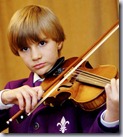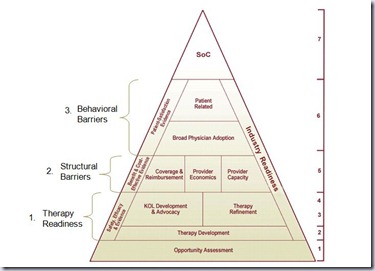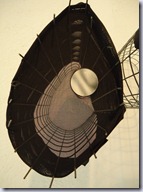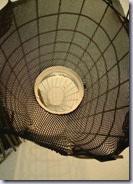Expert or prodigy?
 I was listening to a discussion of Amy Chua’s Battle Hymn of the Tiger Mother, her memoir of parenting two child prodigies, on the drive into London this morning. The ethics of driving exceptional children to excel are central to the discussion, along with provocative ideas about levels, Asian / American stereotypes, over- vs. under parenting, and where the lines lie in treating or mistreating children.
I was listening to a discussion of Amy Chua’s Battle Hymn of the Tiger Mother, her memoir of parenting two child prodigies, on the drive into London this morning. The ethics of driving exceptional children to excel are central to the discussion, along with provocative ideas about levels, Asian / American stereotypes, over- vs. under parenting, and where the lines lie in treating or mistreating children.
However, I’ve been thinking more about the implied question of whether prodigies can be created in a child gifted with strong but not exceptional talent.
Ms Chua drives both her girls into severe musical training at 3 years old, although there is no way to know whether her children had prodigal talent, much less of what type. One does, finally arrive at Carnegie Hall as an accomplished pianist at age 8 (the other, a violinist, rebelled). She credits talent and discipline for developing her daughter’s innate prodigy.
Alternatively, Malcolm Gladwell holds that with 10,000 hours of practice, one can become a world-class expert at virtually anything. Is that the case here, that a perhaps an ordinary girl became extraordinary through intensively accumulating the requisite hours? Or did it take something more?
I want to make two cases.
 1) Gladwell’s rule is more applicable to physical tasks than to intellectual ones.
1) Gladwell’s rule is more applicable to physical tasks than to intellectual ones.
Constant practice improves athletic strength, coordination. stamina, and judgment. I think that this applies directly to musical ability as well: the nuances of fingering, rhythm, pitch, and confidence all build with repetition. There are good neurophysiologic correlates of strengthened synapses and hypertrophied muscles that develop directly from practice.
But, in the absence of a defined physiologic center, can practice be said to strengthen the neural basis for a talent? Repetition of sums does not hypertrophy a mathematical organ; repetitive writing does not develop synapses in some literary center of the brain. Intellectual skills are inherently different than physical ones, they have different substrates and localization (indeed, intellectual skills seem to have no localization in the brain at all).
 2) Gladwell’s rule is more applicable to declarative knowledge than procedural knowledge.
2) Gladwell’s rule is more applicable to declarative knowledge than procedural knowledge.
Spelling and geography prodigies, naturalists who recognize birds by color or call, trivia experts, all operate with declarative knowledge: a knowledge of facts. There is no doubt that drill strengthens memory and recall (a side note: these are also localized functions in the hippocampus), building a store of knowledge that is better organized and more quickly accessed as practice continues.
Procedural knowledge, a knowledge of skills, builds with experience rather than repetition. One cannot become a great writer simply by writing. There must be mentoring and learning,growth and maturity, developing the skill of communicating and the expressive touch to reach others through writing. Again, these draw on diffused skills rather than focused ones.
I think it comes down to technical proficiency vs. true art.
A young Olympic gymnast is technically dazzling, but it results from thousands of hours of practice, not innate prodigal talent. Anyone with the requisite physical substrate could be brought to that level. Similarly, a quiz-show prodigy or a chess master can result from acquiring a vast store of knowledge, developed through devoted drill given a requisite level of intelligence and focused drive.
I believe that the distinguishing test is to see what happens when a new situation is encountered. For a literary student,“Is it a great book?” can be answered by knowing whether the work is on the list, or being able to mimic a great style successfully. For a literary prodigy, it is answered by intrinsically recognizing and producing great works regardless of the state of the canon. A mathematical talent can solve problems at an expert level; a mathematical prodigy sees the answer intuitively, differently.
I have known many talented people, and a few that I consider genius. The difference is not in how hard they work or how many hours they’ve spent, but in their insight, in the way that they conceptualize problems and express answers.
So, in Amy Chua’s case, I think that her talented children were brought to exceptional levels through practice and training in the physical skill and declarative knowledge of playing an instrument. I think that others could do this (not that they should).
However, I do not think that her children are prodigal or genius, and I don’t believe that her methods would have worked to produce accomplished authors or mathematicians. Intellectual skills and procedural knowledge build with introspection and experience, and her training would not strengthen these traits.
Labels: Other literature, Philosophical musings, Psychology





